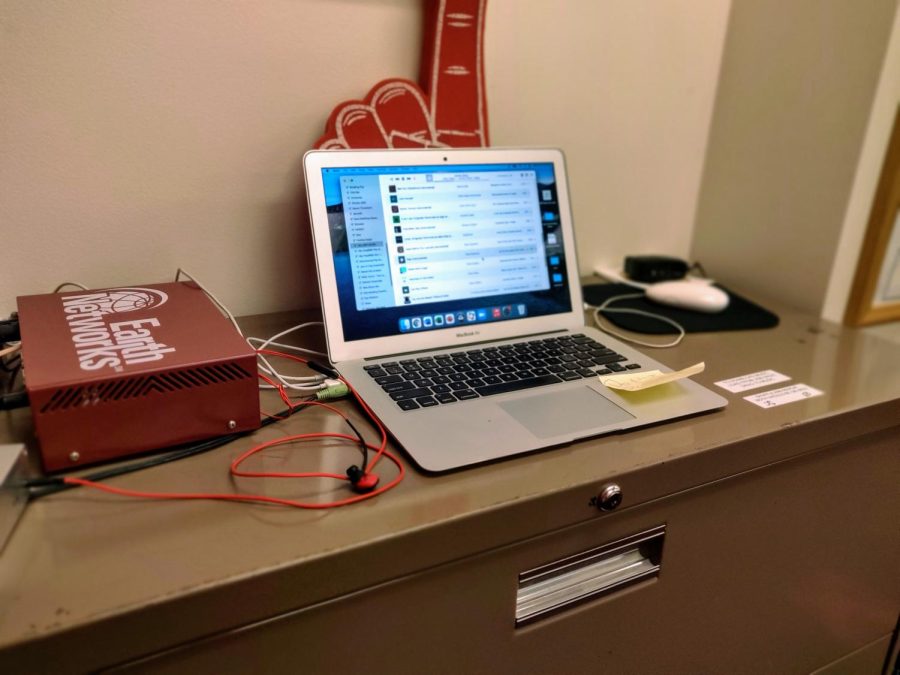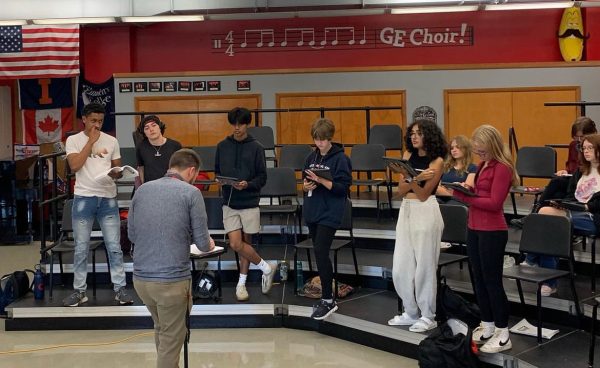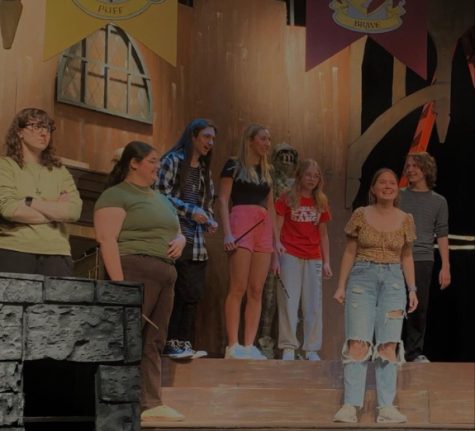Passing Period Puzzle: Who Controls the Music?
During the passing period between second and third hour on August 19th, “Monster Mash” played over the intercom in the hallways of Glenbard East. The halls grew quiet and students began to mutter among themselves, struggling to figure out why the classic Halloween tune would be playing in the middle of August.
A similar event occurred nearly a month later when on September 15th, the same exact song (“Oye Mi Amor” by Maná) played during every single passing period. By the end of the day, everyone was vaguely bewildered but definitely annoyed.
Students were left to wonder: who is the mysterious music controller, this person who can so cruelly toy with the student population’s emotions?
As it turns out: no one in particular, really.
The “heart” of the musical operation lies on an open laptop in a corner of the main office, lying in wait for any staff member to choose the music from set playlists. According to Dawn Zatt, Principal Anderson’s secretary, staff members are free to choose music if they happen to be in the main office. Sometimes they’re asked; sometimes, they just feel like it. And sometimes, the music is simply randomized from the playlists.
After giving it some thought, I suppose it was to be expected. It’s hard to believe that one person alone could have chosen to play ’80s hit “Wishing Well,” an acoustic version of “Despacito,” and a Broadway rendition of Aladdin’s “Never Had a Friend Like Me.”
But Zatt’s answers only left me with more questions: who makes the playlists? Why do we play music in the first place? And why would “Monster Mash” play in the middle of August? To get these answers, I was pointed in two directions: the dean’s office, and Danielle Pavlakis, a teacher and PBIS coordinator at East.
First, I got the chance to speak with Stacey Welton, Dean of Students, who told me that the deans’ role in the matter is limited to checking and approving playlists. She explained that the problem with the popular music previously played in the hallway is its tendency to use themes or language that is not appropriate in school settings. Therefore, the shift to instrumentals was needed “in order to avoid offensive or misogynistic language.”
Welton added that they have made a conscious shift towards songs that relate to cultural events, like Hispanic Heritage Month. That accidentally overplayed song by Maná, a popular rock band from Mexico, was meant to celebrate the start of the event on September 15th.
That’s not all that’s new. Pavlakis, as it turns out, is a new yet integral part of the hallway music situation. She noted a different issue with playlists from years prior. The songs, she says, were getting ridiculously outdated.
To fix the problem she went to Vice Principal of Operations, Michael Souza, who gave her the go-ahead to revamp the program. Since then, Pavlakis has gone into the office at least once a week to update the Apple Music playlist, with a goal of choosing the most relevant songs.
When asked about her motivations for the new changes, she explained: “As a PBIS coordinator, we are always looking for ways to promote SEL, social-emotional learning, for students. We use the music in the halls as a way to put students, you know, at ease.”
Since the point of social-emotional learning is to help the students, she says, student input for song choices would be welcome. As long as it’s instrumental and appropriate, of course.
Therefore, student involvement could be on the horizon: “I think it would be really interesting if we could find a way for students to send in song requests!” Pavlakis told me.
I had one final question for Pavlakis: why did the “Monster Mash” play on that one day in the middle of August?
“Getting the new music set up took a few days, so older songs may have been playing then,” she explained. “But don’t worry, it wasn’t me!”

Marica is a senior and she is returning to the Echo for her second year. Marica is involved in Mock Trial and is the president of Rho Kappa. In her free...








